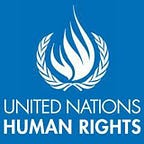Bringing justice to the disappeared
For the last decade, the Convention for the Protection of all Persons against Enforced Disappearances and the Committee on Enforced Disappearances have carried out sustained dialogues with governments, families and others to highlight and sometimes find the missing.
In 2005, Isatou Jammeh’s father and aunt disappeared while at work on the family farm in Gambia. She was 14 years old.
In the subsequent decade and half, she and her family spent a great deal of time trying to find out who disappeared them, why, and to gain some measure of justice. During all this time, they did not get any replies from the authorities. She found out the who in 2013, when, during testimony before the truth and reconciliation commission, men who were members of former Gambian President Yahya Jammeh hit squad confessed to murdering them and others under orders from the then president. However, Isatou Jammeh and her family still do not know where the bodies of her father and aunt are.
“My story is one of many others. Many who do not know the fate of their loved ones and who, like us, live in continuous trauma,” Jammeh told the Committee on Enforced Disappearances (CED) during its opening session in September. “I want the Committee to help with advice and support to ensure that those responsible are brought to justice. I am pleading with the Committee to help and support the victims of enforced disappearances. I want the Committee to guide my government to take action.”
This 23 December marks the tenth anniversary of the entry into force of the International Convention for the Protection of All Persons from Enforced Disappearance. For nearly a decade, the Convention and the CED have been a place for States to seek support to fight against enforced disappearances, and for people to seek justice for disappeared loved-ones at the international level.
“Being a member of the Committee on Enforced Disappearances (CED) allows me to reaffirm my commitment to supporting victims of enforced disappearances,” said committee member Carmen Rosa Villa.
The case for ratification
Yet, despite its usefulness as a binding means to prevent and help prosecute disappearances, the Convention has only been ratified by 63 out of the 193 member States of the United Nations.
Reasons for the low number of countries ratifying the Convention vary. Villa said the Convention’s very youth could be one factor. It was the last human rights mechanism to come into force and States have a tendency to take time analyzing new rules, she said. Another limitation has been that some States, where enforced disappearances occur, may fear to be criticised.
“With this logic, no progress is possible. It is important that all States accept to take action to stop and prevent this crime,” Villa said.
Some of this hesitancy is down to States not making disappearances a priority, said Olivier de Frouville, a member of the CED. This has either been because they consider that enforced disappearances are not part of their national history, or no longer a public issue. This is a mistake, he said.
“Human rights bodies are very often the early warning mechanisms of today that will lead to tomorrow’s prosecutions,” de Frouville said. “(The Convention) includes provision for legal cooperation of States in order to help victims and track perpetrators worldwide, so as to put an end to impunity.”
The CED has teamed up with the UN Human Rights Office on a campaign to encourage more countries to adopt the Convention. The campaign emphasizes that the issue of disappearances is not an artefact from the past, but continues to happen today, and adopting the Convention shows support to the countless thousands of victims of enforced disappearances across the globe.
“Enforced disappearances are unanimously recognized as one of the most heinous existing crimes,” said CED Chair Mohammed Ayat. “All Member States should ratify the Convention and recognize the different competencies of the Committee as an unequivocal demonstration of their commitment to fight against enforced disappearances.”
De Frouville said adoption of the Convention also helps States join a community and network committed to eliminating the practice of enforced disappearances. Whether a State has experienced enforced disappearances now or in its distance or recent past, the Convention, through the Committee can provide support and assistance.
“ And States that are lucky enough to not have had this experience need to ratify so as to bring their assistance to the victims in their efforts to search for their loved ones and participate in the global effort to fight impunity of perpetrators worldwide,” he said. “Let’s join!”
You can learn more about the push for ratification and how to “Stand up for the disappeared” on our special web page.
